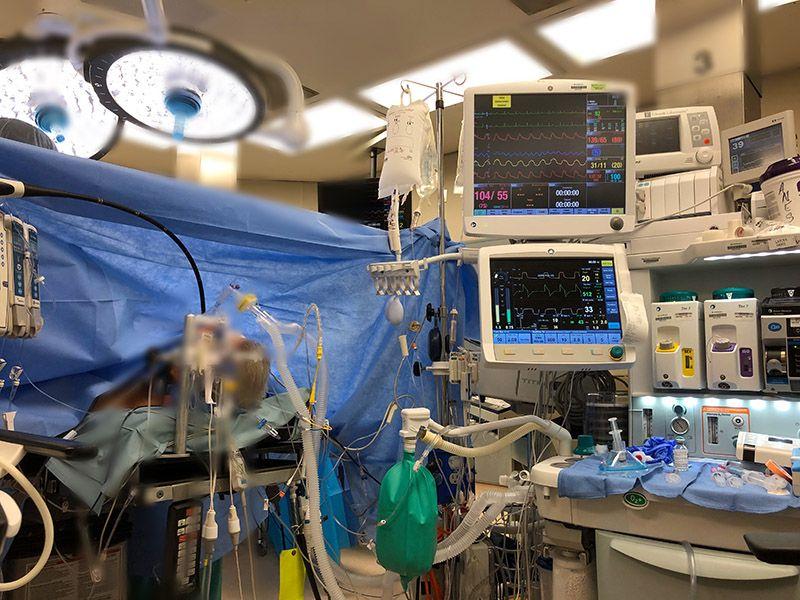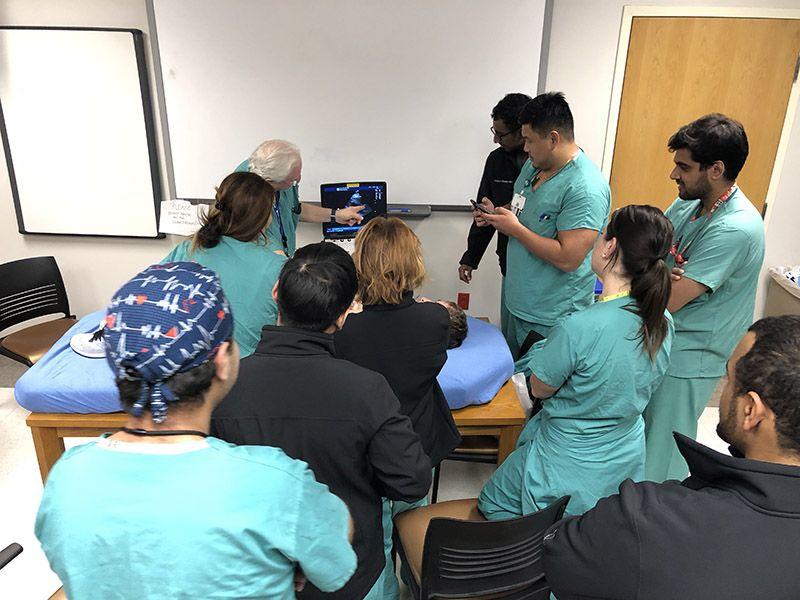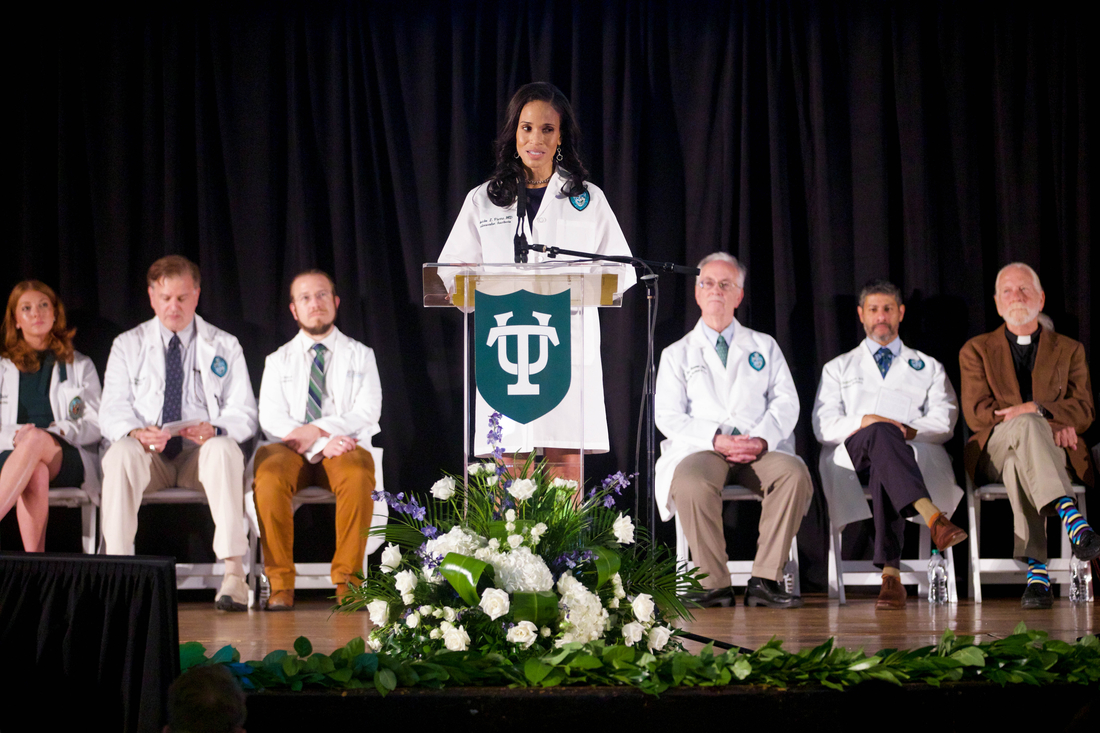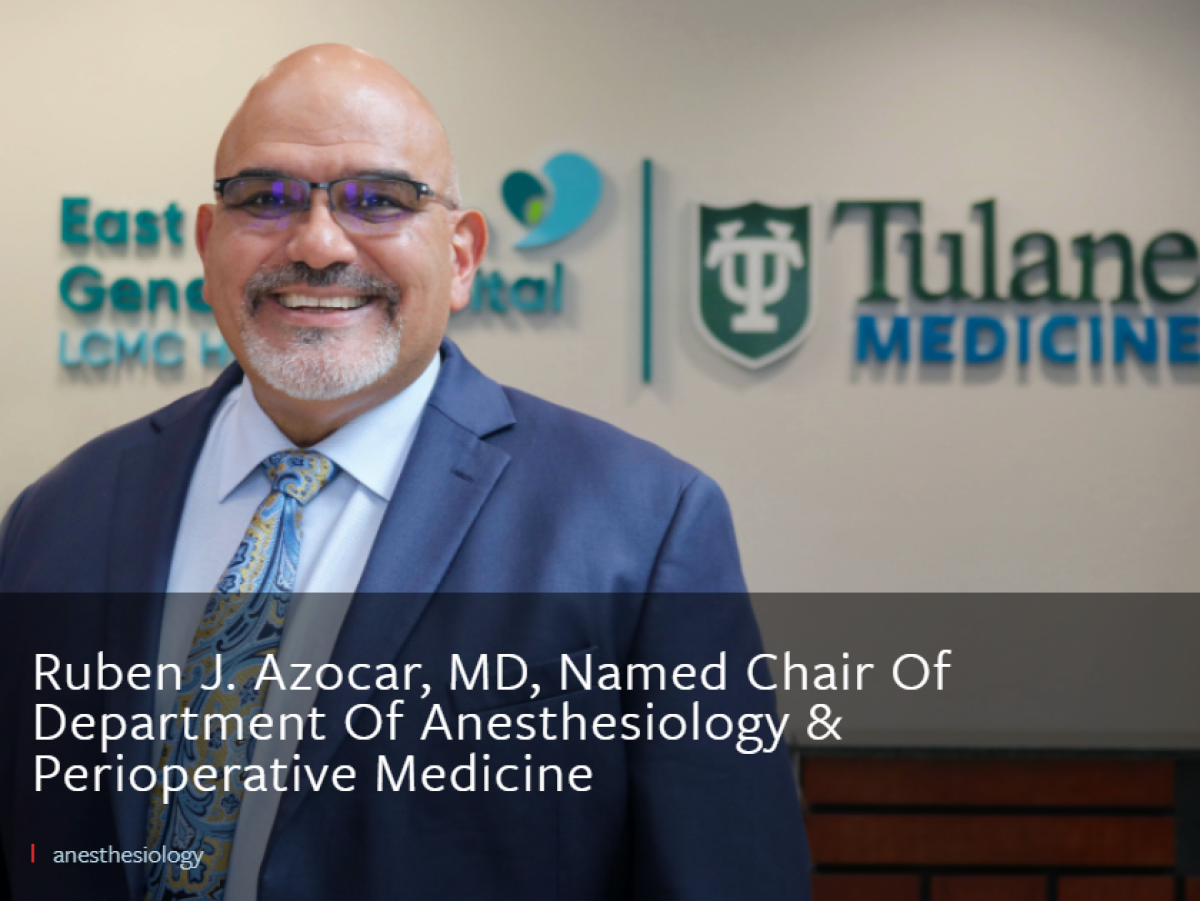Anesthesiology

Our residents develop into perioperative physician consultants who are well-prepared for leadership roles in the academic or private practice setting.
Historically, our Department has sponsored two subspecialty fellowships in Regional Anesthesiology and Practice Management with a program sponsored MD from Tulane University. We are excited about the potential to reinitiate these training programs and have continued growth with research within the department. We are also hoping to increase our residency training program numbers due to the expansion and growth of patient care and case complexity resulting from our partnership with LCMC.

Tulane University Medical Center offers a two-week anesthesiology rotation for third and fourth-year medical students, which includes clinical observation, hands-on training, and optional duties like transplant and heart call. Students also participate in daily teaching sessions and take a written problem-solving test. First and second-year students can also arrange elective rotations focused on observation, with optional task trainer classes. Tulane encourages all interested students to join the American Society of Anesthesiologists Medical Student Component.
Preparing the Next Generation of Anesthesiologist for Leadership and Clinical Excellence
Tulane Anesthesiology is preparing the next generation of anesthesiologists for leadership and clinical excellence. We recruit the best people and give them extensive clinical training tools to equip them for medical practice in the 21st century.
Our department is committed to the best care of our patients and the success of our hospital partners. To do this, our faculty commits to educating residents, and we draw on the extensive resources Tulane University has and our international partnerships.

Anesthesiology is one of the most challenging, demanding, and rewarding of all medical specialties. This specialty is challenging because of its involvement with every type of patient, and every imaginable condition. The demands of this specialty are great, as extensive knowledge and technical skills must be brought together for maximum patient care in a variety of clinical environments.
Anesthesiology is rewarding because of its range of clinical practice opportunities, and there are numerous professional development directions. We experience the great satisfaction that comes with making a tremendous impact on the lives of our patients, our colleagues, our hospitals and students. Anesthesiology is no longer a specialty limited to the operating room. While much of the work occurs in the OR, the practice of anesthesiology has expanded into intensive care units, ambulatory care centers, non-OR diagnostic areas, outpatient facilities, clinics, research labs and classrooms. Anesthesiologists are advancing medical care at the local, national, and international level. The specialty of Anesthesiology has been driving patient safety and quality improvement long before they became the popular topics. Tulane Anesthesiology is preparing physicians with the knowledge and skills for today, and the critical thinking and leadership skills that will carry their careers forward.

